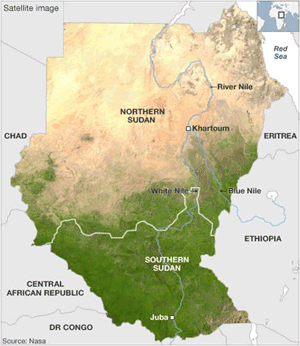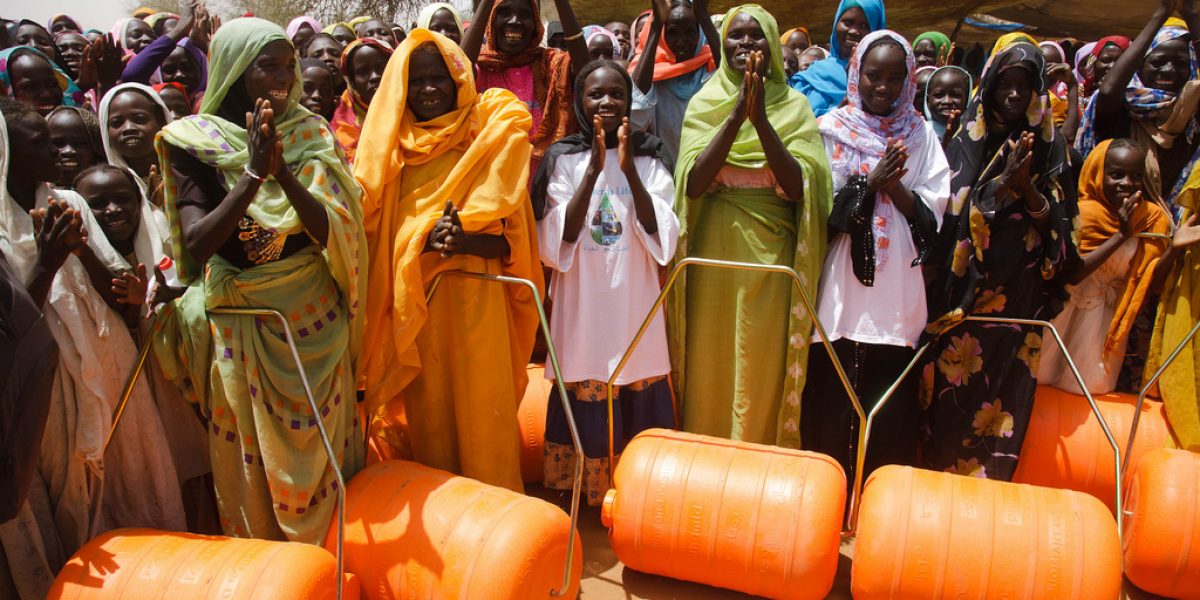It holds tremendous consequences for citizens and the future of the country’s governance structures. Moreover, the governance of Sudan’s oil sector and the management of water resources are both internal issues with geopolitical repercussions.
A Roundtable Seminar Report:
Governance of Africa’s Resources Programme (GARP)
Thursday, 13 January 2011, 9:30am-2:00pm
Jan Smuts House, University of the Witwatersrand
Johannesburg
On 13 January 2011 SAIIA’s Governance of Africa’s Resources Programme (GARP) convened a seminar to discuss political developments in Sudan, focusing in particular on likely post-referendum scenarios and the critical role of resources in the future relationship between Northern and Southern Sudan.
As voting was still underway at the time of the seminar, there was as yet no certainty that Southern Sudan would secede. However all speakers conceded that the results would likely show overwhelming support for secession.
GARP’s programme head, Dr. Kathryn Sturman, underlined the importance of an uninterrupted flow of oil revenues for the viability of both Northern and Southern Sudan. She also highlighted the issue of water resources within the Nile basin, emphasizing the importance of resource governance and development within Southern Sudan to ensure the legitimacy of the new state.

From the South, Dr. Leben Nelson Moro, from the Centre for Peace and Development Studies at the University of Juba, shared his insights as an academic and former exile. Both speakers emphasized that the referendum currently underway represented a significant achievement given the history of conflict within Sudan. Dr. Alsharif quoted a lecture delivered by former president of South Africa, Thabo Mbeki, at the University of Khartoum, in which he stressed the need for both Northern Sudan and Southern Sudan to embrace diversity and encourage a unifying African identity rather than engaging in divisive identity politics. Dr. Alsharif also emphasised Mbeki’s insistence on the importance of two viable states.
Both Dr. Alsharif and Dr. Moro emphasised that, if as expected Southern Sudan were to secede, a number of pressing issues will have to be addressed. These include the establishment of inclusive state institutions and equitable development in Southern Sudan, as well as addressing border issues and uncertainty around the Abyei region. As Dr. Alsharif points out, the tension in Abyei could jeopardize “peace that is vital to Sudan, neighbouring states and Africa in general”. Other major issues include the presence of Darfur rebels in Southern Sudan, the distribution of water among Nile basin states, and the importance of cooperation between the North and South.
Both speakers underlined the fact that Northern and Southern Sudan were interdependent, and that the overriding need in the future would be to maintain peace between the two regions. Both speakers noted that oil will likely be a unifying rather than a divisive issue, as both Northern and Southern Sudan are dependent on an uninterrupted flow of oil revenues. Dr. Moro’s view is that “oil divided the country during the war but could also be the issue that unites the region.”
During the second session Mr. Jean-Jacques Cornish, a specialist journalist in African affairs, and Dr. Petrus de Kock, a senior researcher from SAIIA’s Governance of Africa’s Resources Programme offered a number of insights. On a recent trip to Sudan, Mr. Cornish observed that the presence of Darfur rebels in Southern Sudan will be a major challenge in relations between Northern and Southern Sudan. He highlighted the pressing need for infrastructure development in Southern Sudan and, like the earlier speakers, emphasized the economic interdependence of Northern and Southern Sudan saying that “economically, they are joined at the hip.”
Dr. De Kock focused on issues of resource governance between Northern and Southern Sudan, particularly related to oil and water. 75% of Sudan’s 5 billion barrels of oil is located in the South. He also reflected on plans in Southern Sudan to develop a 3 600km pipeline from Juba to Lamu on Kenya’s coast. However, due to enormous technical and financial challenges, a question mark hangs over the feasibility of such a project. Dr. De Kock also drew attention to the geopolitics surrounding the waters of the Nile, noting that Southern Sudan would seek to use a share of the water for agriculture, industry and hydro-electricity, and that the distribution of the Nile’s water resources would be an important regional issue affecting all the states of the Nile basin. (See Dr Petrus De Kock’s presentation here)
The seminar was concluded by Dr. Kathryn Sturman, who noted that the referendum is not the end of Sudan’s peace process. Rather, it represents a new beginning for the people of Northern and Southern Sudan.








